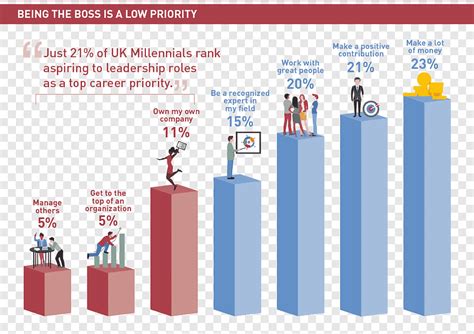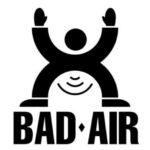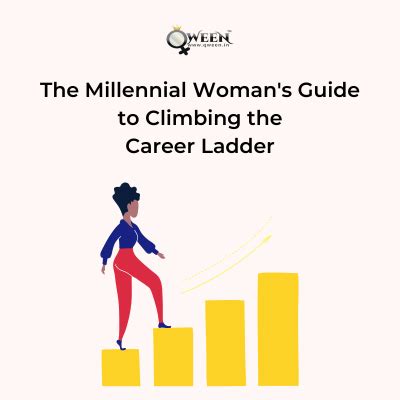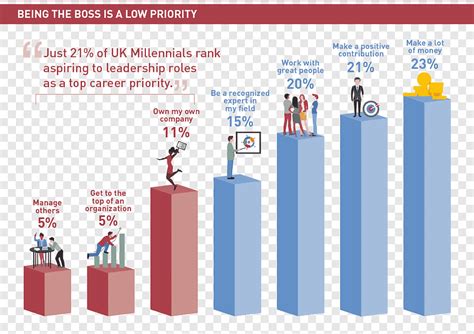
The higher millennials climb the corporate ladder, the more challenging and isolating their careers become, according to one professional who warns of an increasingly “deadly” environment at senior levels.
A millennial career professional is warning that the higher one climbs the corporate ladder, the more difficult and isolating it becomes, describing the environment as increasingly “deadly.” The sentiment echoes broader concerns about workplace culture, particularly at senior levels, and the pressures faced by younger generations navigating established professional landscapes.
“The further I go in my career, the more deadly it is,” the professional, known as @CorporateNatalie on TikTok, stated. Her experiences reflect a growing discourse surrounding generational disparities in workplace expectations, management styles, and overall career fulfillment. The video, which went viral, prompted significant discussion about the realities of career advancement and the potential pitfalls of chasing higher-level positions.
The core of @CorporateNatalie’s message revolves around the challenges of navigating complex organizational politics, managing increased responsibilities, and the feeling of isolation that can accompany senior roles. “It’s backstabbing. It’s people throwing you under the bus. It’s a lot of quiet firing,” she explained, highlighting the cutthroat nature she perceives at higher levels. Quiet firing, a term that has gained traction recently, refers to employers making a job undesirable for an employee, hoping they will quit rather than facing a formal termination.
One of the significant aspects of the discussion is the generational lens through which these experiences are viewed. Millennials, who came of age during periods of significant economic upheaval and technological advancement, often have different expectations regarding work-life balance, purpose, and company culture compared to older generations who may have shaped the existing corporate environment. This disconnect can lead to friction and misunderstandings, particularly as millennials move into leadership positions.
The shift in workplace priorities among younger generations is a key factor influencing this dynamic. While previous generations might have prioritized job security and financial stability above all else, millennials and Gen Z often place greater emphasis on factors like meaningful work, personal growth, and a supportive work environment. When these expectations are not met, it can lead to disillusionment and burnout.
The video also touched on the competitive nature of the corporate world, where individuals are often pitted against each other in pursuit of promotions and recognition. This can create a toxic environment where collaboration is stifled, and individuals are more likely to engage in self-serving behavior. “I really think it’s like the ‘Hunger Games’ to get to the top,” @CorporateNatalie remarked, emphasizing the intense competition and pressure she has observed.
The concerns raised are not limited to specific industries or companies. They reflect a broader trend of increased pressure and competition across various sectors. As organizations become more complex and globalized, the demands on senior leaders continue to grow, leading to longer hours, higher stress levels, and a greater sense of isolation.
The response to @CorporateNatalie’s video demonstrates the widespread resonance of her message. Many millennials shared similar experiences, validating her observations and highlighting the need for a more supportive and humane workplace culture. Some commenters discussed the importance of setting boundaries, prioritizing mental health, and seeking out mentors who can provide guidance and support. Others emphasized the need for organizations to address systemic issues that contribute to toxic work environments.
Furthermore, the conversation extended beyond individual experiences, prompting discussions about the role of leadership in shaping workplace culture. Many argue that leaders have a responsibility to create environments where employees feel valued, supported, and empowered to succeed. This includes fostering open communication, promoting collaboration, and addressing issues of inequality and discrimination.
The discussion also highlights the importance of self-awareness and adaptability in navigating the corporate world. Millennials entering leadership positions need to be aware of the challenges they may face and develop strategies for managing stress, building relationships, and maintaining their values. This might involve seeking out leadership training, developing strong communication skills, and building a network of supportive colleagues and mentors.
Another element of the discussion is the increasing awareness of mental health in the workplace. The pressures of corporate life can take a significant toll on mental well-being, leading to anxiety, depression, and burnout. Organizations are increasingly recognizing the importance of providing mental health resources and support to employees, including access to counseling services, stress management programs, and flexible work arrangements.
The experiences shared by @CorporateNatalie and others underscore the need for a fundamental shift in how organizations approach leadership development and workplace culture. Creating a more sustainable and fulfilling work environment requires a commitment to promoting collaboration, prioritizing employee well-being, and fostering a sense of purpose and meaning.
The emphasis on “quiet firing” as a tactic underscores the sometimes subtle ways in which companies can push out employees they no longer want without formally terminating them. This can include reducing responsibilities, excluding individuals from important meetings, or creating a generally hostile work environment. The prevalence of this practice highlights the power dynamics at play in the workplace and the vulnerability of employees who may feel pressured to resign rather than risk being fired.
The concept of “deadly” career progression is a stark metaphor that captures the potential downsides of pursuing higher-level positions. While career advancement can bring increased responsibility, recognition, and financial rewards, it can also come at the cost of personal well-being, relationships, and a sense of fulfillment. The need for a more balanced and sustainable approach to career development is becoming increasingly apparent.
The debate also opens up the conversation about the role of personal values in career decisions. Millennials, in particular, are often driven by a desire to make a positive impact on the world and to align their work with their personal values. When these values are not aligned with the goals and practices of their employers, it can lead to conflict and disillusionment.
The warning also serves as a cautionary tale for those who blindly pursue career advancement without considering the potential consequences. The allure of higher salaries and prestigious titles can be strong, but it is important to carefully evaluate whether the benefits outweigh the potential costs. This includes considering the impact on personal relationships, mental health, and overall quality of life.
Furthermore, the experiences shared by @CorporateNatalie and others highlight the importance of seeking out supportive and ethical work environments. While it may not always be possible to avoid toxic workplaces entirely, it is important to be proactive in identifying and avoiding organizations that prioritize profits over people. This includes researching company culture, talking to current employees, and paying attention to red flags during the hiring process.
The discussion also emphasizes the importance of developing strong coping mechanisms for dealing with workplace stress and adversity. This might include practicing mindfulness, engaging in regular exercise, spending time with loved ones, and seeking professional help when needed. Building resilience is essential for navigating the challenges of the corporate world and maintaining a healthy work-life balance.
Moreover, the experiences shared underscore the need for organizations to invest in leadership training and development programs that focus on creating inclusive and supportive work environments. This includes training leaders to communicate effectively, manage conflict constructively, and empower their teams to succeed. Effective leadership is essential for fostering a positive workplace culture and retaining talented employees.
The warning serves as a call to action for organizations to re-evaluate their approach to career development and workplace culture. Creating a more sustainable and fulfilling work environment requires a commitment to promoting employee well-being, fostering a sense of purpose and meaning, and addressing systemic issues that contribute to toxic work environments.
Ultimately, the discussion sparked by @CorporateNatalie’s video highlights the need for a more human-centered approach to work. This includes recognizing the importance of individual well-being, fostering a sense of community and belonging, and prioritizing ethical and sustainable business practices. Creating a workplace where employees feel valued, supported, and empowered to succeed is not only good for individuals, but also good for business.
The conversations sparked by the viral video have underscored a growing sentiment among younger professionals that career advancement, while offering certain rewards, can also come at a significant personal cost. The relentless pursuit of promotions and higher salaries may lead to increased stress, burnout, and a sense of isolation. This has led many to re-evaluate their priorities and seek out more balanced and fulfilling career paths.
The emphasis on “quiet firing” as a form of workplace manipulation underscores the power dynamics at play in many organizations. When employees feel undervalued or targeted, they may experience a decline in motivation and productivity, leading to a self-fulfilling prophecy. This can create a toxic cycle of negativity that undermines the overall health of the organization.
The concept of a “deadly” career is a metaphor that resonates with many who have experienced the pressures and sacrifices associated with climbing the corporate ladder. The pursuit of success can become all-consuming, leading to neglect of personal relationships, health, and overall well-being. This can result in a sense of emptiness and disillusionment, even after achieving significant career milestones.
The discussions also highlight the importance of aligning personal values with career goals. Millennials and Gen Z are increasingly seeking out work that is meaningful and purpose-driven. They are less likely to be motivated solely by financial rewards and are more likely to prioritize organizations that share their values. This shift in priorities is driving a growing demand for socially responsible and ethical business practices.
The warning serves as a reminder that career success is not the only measure of a fulfilling life. Personal relationships, health, and overall well-being are equally important. It is essential to find a balance that allows for both professional achievement and personal fulfillment. This may involve setting boundaries, prioritizing self-care, and seeking out supportive relationships.
Furthermore, the discussions underscore the need for organizations to create more inclusive and equitable workplaces. This includes addressing issues of diversity, equity, and inclusion, and creating opportunities for all employees to thrive. A diverse and inclusive workforce is not only more ethical, but also more innovative and productive.
The experiences shared by @CorporateNatalie and others highlight the importance of seeking out mentors and role models who can provide guidance and support. Mentors can offer valuable insights and perspectives on navigating the corporate world and can help individuals to develop the skills and strategies needed to succeed.
The warning serves as a call to action for organizations to create more human-centered workplaces. This includes prioritizing employee well-being, fostering a sense of community, and promoting ethical and sustainable business practices. A workplace where employees feel valued, supported, and empowered to succeed is not only good for individuals, but also good for business.
Frequently Asked Questions (FAQ)
1. What is the main concern highlighted in the news article?
The main concern is that career advancement for millennials, particularly as they reach senior levels, can become increasingly challenging, isolating, and even “deadly” due to cutthroat competition, toxic workplace cultures, and the pressure to conform to established norms. This can lead to burnout, disillusionment, and a sense of isolation.
2. What is “quiet firing” and why is it relevant to the discussion?
“Quiet firing” refers to employers making a job undesirable for an employee, often hoping they will quit rather than facing a formal termination. This can involve reducing responsibilities, excluding individuals from important meetings, or creating a hostile work environment. It’s relevant because it illustrates the power dynamics at play in the corporate world and the subtle ways in which employees can be pushed out.
3. How do generational differences contribute to the issues discussed in the article?
Millennials often have different expectations regarding work-life balance, purpose, and company culture compared to older generations who may have shaped the existing corporate environment. This disconnect can lead to friction and misunderstandings, particularly as millennials move into leadership positions and challenge traditional workplace norms. They often prioritize meaningful work and personal growth over solely financial gains.
4. What can individuals do to navigate the challenges of career advancement and maintain their well-being?
Individuals can:
- Set boundaries to protect their work-life balance.
- Prioritize mental health and seek support when needed.
- Seek out mentors and build a supportive network of colleagues.
- Develop strong communication and conflict-resolution skills.
- Align their career goals with their personal values.
- Research company culture before accepting a job.
- Develop coping mechanisms for dealing with workplace stress.
5. What role should organizations play in addressing the issues raised in the article?
Organizations should:
- Invest in leadership training and development programs that focus on creating inclusive and supportive work environments.
- Foster open communication and promote collaboration.
- Address issues of inequality and discrimination.
- Provide mental health resources and support to employees.
- Promote work-life balance and flexible work arrangements.
- Re-evaluate their approach to career development and workplace culture.
- Prioritize ethical and sustainable business practices.
- Work towards removing policies and cultures that support quiet firing and other detrimental practices.
Expanding on the original points:
Deeper Dive into Workplace Toxicity and “Quiet Firing”
The term “toxic workplace” has become increasingly prevalent in discussions about career satisfaction and employee well-being. Toxic workplaces are characterized by a range of negative behaviors, including bullying, harassment, discrimination, and a lack of respect for employees. These environments can have a devastating impact on mental and physical health, leading to increased stress, anxiety, depression, and burnout.
“Quiet firing,” as discussed in the original article, is a particularly insidious form of workplace toxicity. It involves employers creating a hostile or undesirable work environment with the intention of forcing an employee to resign rather than formally terminating them. This can be accomplished through a variety of tactics, such as:
- Reducing Responsibilities: Taking away important projects or assignments to make the employee feel undervalued.
- Excluding from Meetings: Deliberately excluding the employee from important meetings and discussions.
- Micromanaging: Closely monitoring the employee’s work and constantly criticizing their performance.
- Creating a Hostile Environment: Allowing or encouraging bullying, harassment, or other forms of mistreatment.
- Setting Unrealistic Expectations: Setting performance goals that are impossible to achieve.
The practice of “quiet firing” is often used by employers as a way to avoid the costs and potential legal challenges associated with formal termination. However, it can have a significant negative impact on the employee’s mental and emotional well-being. It can also create a climate of fear and distrust within the workplace.
Generational Differences in Workplace Expectations: A Clash of Cultures
The article highlights the significant differences in workplace expectations between millennials and older generations. These differences stem from a variety of factors, including:
- Economic Conditions: Millennials came of age during periods of economic instability, including the dot-com bust and the 2008 financial crisis. This has led them to be more cautious about job security and more likely to prioritize work-life balance.
- Technological Advancements: Millennials are digital natives who have grown up with technology. They expect workplaces to be technologically advanced and to offer flexible work arrangements.
- Cultural Shifts: Millennials are more likely to value diversity, inclusion, and social responsibility. They want to work for organizations that align with their values.
These generational differences can lead to conflict and misunderstandings in the workplace. Older generations may view millennials as entitled or lacking in work ethic, while millennials may view older generations as out of touch or resistant to change.
Strategies for Navigating the Corporate World and Maintaining Well-being
The article offers several strategies for navigating the challenges of career advancement and maintaining well-being. These strategies include:
- Setting Boundaries: It is important to set boundaries between work and personal life to avoid burnout. This may involve setting specific work hours, limiting email access outside of work hours, and taking regular breaks.
- Prioritizing Mental Health: Mental health is just as important as physical health. It is important to prioritize self-care activities, such as exercise, meditation, and spending time with loved ones. It is also important to seek professional help if needed.
- Seeking Out Mentors: Mentors can provide valuable guidance and support as you navigate the corporate world. Look for mentors who have experience in your field and who can offer advice on career development and leadership.
- Building a Supportive Network: Building a network of supportive colleagues can help you to feel more connected and less isolated at work.
- Developing Strong Communication Skills: Effective communication is essential for building relationships and resolving conflicts in the workplace.
- Aligning Career Goals with Personal Values: It is important to choose a career that aligns with your personal values. This will help you to feel more fulfilled and engaged in your work.
- Researching Company Culture: Before accepting a job, research the company culture to make sure that it is a good fit for you. Look for companies that value diversity, inclusion, and employee well-being.
- Developing Coping Mechanisms: It is important to develop coping mechanisms for dealing with workplace stress. This may involve practicing mindfulness, engaging in regular exercise, or seeking professional help.
The Role of Organizations in Creating a Sustainable and Fulfilling Work Environment
The article emphasizes the need for organizations to create a more sustainable and fulfilling work environment. This requires a commitment to promoting employee well-being, fostering a sense of purpose and meaning, and addressing systemic issues that contribute to toxic work environments.
Organizations can take several steps to create a more positive workplace culture, including:
- Investing in Leadership Training: Leadership training programs should focus on developing leaders who are able to communicate effectively, manage conflict constructively, and empower their teams to succeed.
- Promoting Open Communication: Organizations should create a culture of open communication where employees feel comfortable sharing their ideas and concerns.
- Addressing Issues of Inequality and Discrimination: Organizations should take steps to address issues of inequality and discrimination in the workplace. This may involve implementing diversity and inclusion programs, providing training on unconscious bias, and creating a zero-tolerance policy for harassment.
- Providing Mental Health Resources: Organizations should provide mental health resources to employees, such as access to counseling services, stress management programs, and flexible work arrangements.
- Promoting Work-Life Balance: Organizations should promote work-life balance by offering flexible work arrangements, encouraging employees to take time off, and setting realistic expectations.
- Re-evaluating Performance Metrics: Reviewing metrics to evaluate if they are contributing to a toxic environment.
By taking these steps, organizations can create a more sustainable and fulfilling work environment where employees feel valued, supported, and empowered to succeed. This is not only good for individuals, but also good for business. A positive work environment leads to increased productivity, innovation, and employee retention. It is also more likely to attract top talent.
The insights from @CorporateNatalie and the widespread reaction to her video serve as a crucial reminder that the pursuit of career advancement should not come at the expense of personal well-being. The responsibility lies both with individuals to prioritize their mental and physical health and with organizations to create work environments that are supportive, inclusive, and sustainable. Only through a collective effort can we create a corporate world that is truly rewarding and fulfilling for all generations.









